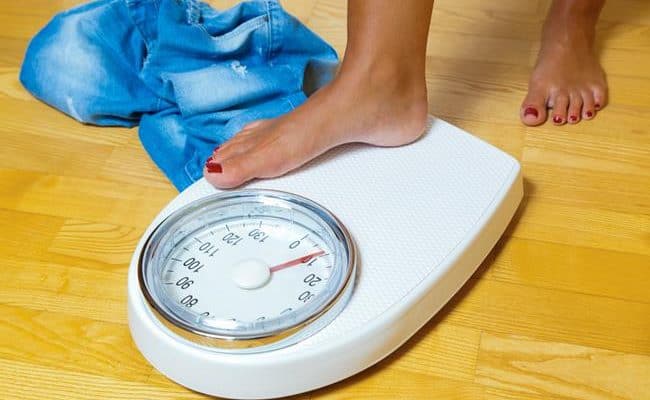
Many people may have heard that resistance training, including lifting weights, can be beneficial for your health and contribute to weight loss. However, it is often unclear just how big a part weight training plays in increasing the metabolism and causing fat loss. Should we all be swapping our cardio routines for dumbbells to get the best results?
How do resistance training and cardio help us to lose fat?
Both types of activities burn calories, although cardio or aerobic activity is more efficient at this than resistance training, so for the same time period, you will burn more calories by doing cardio activity than lifting weights. However, it should be noted that the number of calories that are burnt during cardio exercise is greatly dependent on the intensity of the workout.
Resistance training however, will increase muscle mass, which is more metabolically active at rest, hence increasing the calories you burn at rest. Whilst this is the case, the amount of extra calories you are actually burning due to this increased metabolic rate is often hugely overestimated, meaning it may not have as much of an effect on weight loss as is often stated.
Muscle also weighs more than fat, so if you are doing resistance training, you may not notice any difference on the scales.
The evidence
Although it has been widely broadcasted in the media that resistance training is essential for fat loss and may even be more effective than cardio, the scientific evidence suggests otherwise.
A 2011 meta-analysis of studies that investigated the effects on cardio versus resistance training on fat loss in obese and overweight adults concluded that aerobic exercise was the key factor in achieving fat loss, although it also stated that more research was needed into combined effects of aerobic and resistance training.
A later 2012 study compared weight loss, fat loss and cardiovascular fitness in overweight and obese participants on a resistance, aerobic or combination exercise program. They found that the combination exercise approach resulted in greater benefits for weight loss, fat loss and fitness levels.
Another 2012 study also compared the effects of resistance training, aerobic training or a combination of both, however, in this case they found that aerobic training was more effective in reducing fat than the other methods.
As you can see the results are far from conclusive and it can be said that both aerobic and resistance training have their benefits. However, it seems that although it is unclear if resistance training in combination with aerobic exercise is more or less effective that aerobic exercise alone in terms of reducing fat, it seems that aerobic exercise is more beneficial than resistance training alone.
See also: 10 Tips to improve your cardio workout
What are the benefits of weight training?
Weight training is said to have significant effects on bone density, reducing risk of osteoporosis and fractures. It has also been linked to health benefits such as improved insulin resistance, glucose metabolism, blood pressure and even gastrointestinal transit time, which can reduce the risk of heart disease, diabetes and some cancers.
Weight train also increases strength which can be important in day to day life, especially in older people, and can help to tone and sculpt the body giving a better appearance.
See also: Benefits of strength training for women
What is the best way to lose fat?
From the research currently available, it seems that cardiovascular exercise is the most effective way to reduce fat. However, although it is unclear if adding resistance training to this will bring much benefit in terms of fat loss; the additional health benefits associated with this type of exercise make it worthwhile adding it into your exercise regime.
A combination of cardio and resistance training gives a multitude of health benefits and will not only result in fat loss, but also tone, and strengthen your body.
It should be noted that any exercise regime designed for fat loss is not likely to be successful unless it is accompanied by a healthy diet. For fat loss, ideally the diet should be lower in calories to achieve a state of negative energy balance as this is the most effective way to burn fat.
No matter how much exercise you do to burn calories, if you are eating too much and consuming too much energy, you will not get the fat loss that you are aiming for.
See also:
How to burn more fat while exercising
HIIT: Is it really the fastest way to lose fat
References used in this article











Joe Young says
Combining both cardio and resistance training is the way to go. But doing it at high-intensity intervals will give the most benefits if you want cardiovascular endurance, fat loss, increased strength and muscle gain. Not only that, but this type of program will take a lot less time than long lifting or cardio sessions. Yes, a healthy diet is the most important aspect.
conroy says
I am a beginner in weight lifting. But i think cardio burned more calories that weight lifting.
And the more intense your workout is the more calorie you burned.
akshay says
I am fat I started cardio 2 months ago and lost 7 kgs . Now I am 99 kg . My trainer says if I do too much cardio I’m gonna lose my muscle weight . This will make me incapable of making a good body once I’ve lost weight. Is that true. Should I start weight training or just stick to cardio or do both.
Anuj says
Hii Akshay ,
Now try start doing weight training and then do your cardio , 30 mints of weight training and then 45 minutes of cardio is sufficient.
if we only do cardio then a stage will come when weight loss will be stagnant.
Thanks